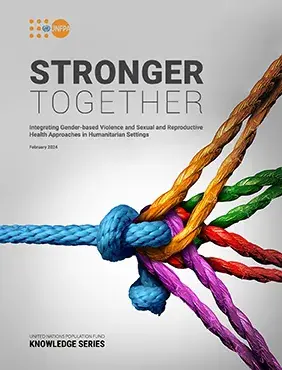In humanitarian contexts, the rights to universal access to sexual and reproductive health (SRH) and freedom from gender-based violence (GBV) remain paramount. Achieving these rights requires addressing the underlying causes of gender inequality and discrimination, which fuel both GBV and inadequate SRH outcomes. Humanitarian actors play a pivotal role in realising these rights by implementing measures to ensure women and girls have access to high-quality GBV and SRH services and information.
Creating an enabling environment is essential to empower women and girls to make informed choices about their health and safety. This includes facilitating access to specialised prevention and response services tailored to their needs. Integration of GBV and SRH approaches proves to be an effective strategy, enhancing the accessibility and impact of lifesaving services. Engaging women and girls throughout the program cycle – from needs assessment to program design, implementation, and evaluation – is paramount to effectively addressing their GBV and SRH needs.
This tool has been developed to support the integration of GBV and SRH interventions in humanitarian settings within the Arab region. Aimed at GBV and SRH service providers and program managers, it facilitates the initiation, strengthening, or scaling up of integrated approaches. Rather than prescribing a standardised approach, the tool emphasises the importance of tailoring interventions to specific contexts. It shares promising practices, identifies potential obstacles, and offers practical tips for overcoming challenges associated with integrated GBV and SRH approaches. By enhancing the delivery of integrated services, this tool contributes to improving the health and well-being of women and girls in humanitarian settings.


